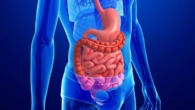
Dispelled five main myths about weight loss
0
Most advice on how to lose weight is based on myths . The publication presents five common misconceptions in society about how to lose excess weight. The approach of nutritionists to obesity has changed a lot, and what was recently presented as truth turned out to be a mistake, the article emphasizes.
There is a huge amount of advice and recommendations on how to get rid of extra pounds and prepare for the coming spring. Unfortunately, not all of them work.
It is difficult to find a topic that everyone likes to discuss with the same passion as the topic of someone else's figure, especially if it is not devoid of excessive roundness. Overweight people hear good advice from all sides about how to lose weight. “The best diet is called ZHP, that is, eat half!” – the joker-uncle chops from the shoulder at the festive table. “Where do you spread so much butter on bread? What, do you want to get fat?” – chastises the older sister, who has the strong build of a teenager. “Don't have dinner, it's not harmful to fast a little,” suggests the mother, trying to support her daughter in the fight against excess weight. Let's not even talk about the fact that such remarks are tactless. Most of them are based on popular myths that have nothing to do with scientific knowledge. The approach of nutritionists to obesity has undergone a big change, and what until recently was presented as an alphabetic truth turned out to be a mistake.
Myth #1: if you don't want to get fat, avoid fats
< p>A person gains weight because he eats too much fatty food, such a popular myth appeared more than one decade ago. It turns out, however, that reducing the amount of fat in the diet can sometimes not only not help in the process of losing weight, but also cause hunger pangs, provoking the “yo-yo” effect as a result.
“In the process of reducing weight, a person should receive the necessary amount of healthy fats”, says clinical nutritionist, employee of the Opole Polytechnic University Monika Dąbrowska-Molenda. Fats reduce the glycemic load of food, that is, they limit the increase in the level of glucose in the blood, and this prevents sharp releases of insulin.
“A normal level of insulin is a key factor in the process of losing weight. When it rises, hunger pangs appear and insulin resistance develops, which instigates weight gain,” the expert explains. Healthy fats should be present in the diet of a person trying to lose weight. They can be found in fish, olive and coconut oil, avocados, nuts, seeds.
“It is important that these are unrefined fats, cold-pressed oil,” adds Dombrovska-Molenda. It should be remembered that the main enemies of a slim figure are not fats, but simple sugars. Their sources are white and brown sugar, sweets, white bread.
Myth #2: hunger is your ally
It would seem that it is easier: if you want to lose weight, eat less. However, everything is not so clear. If you drastically limit portions or decide to give up some meals, you can harm yourself. First, the feeling of hunger has a very bad effect on the psyche and destroys the motivation to lose weight. “It is impossible for an obese person, especially at the beginning of the treatment process, to be constantly sucked under a spoon, psychologically it will be unbearable for him,” Dombrovska-Molenda points out. – The menu should be made so that the patient can satisfy his hunger, but not get too many calories.”
When a person feels an acute feeling of hunger, he attacks food and can eat much more than if he sat down at the table without having time to get so hungry. Skipping breakfast, lunch or dinner, extending the interval between them can lead to bouts of ravenous hunger, during which it is easy to stop controlling the amount of food consumed. Reduce portion sizes carefully and gradually to avoid side effects.
Myth #3: some vegetables and fruits have negative calories
Products with a negative calorie content are those that require more energy to digest than can be obtained from them. These include celery, broccoli, cucumber, grapefruit, and fresh pineapple. However, nutritionists continue to debate whether any food can have negative calories.
“The latest studies and calculations show that even a stalk of celery, consisting of 95% water, gives more energy than is needed for its assimilation,” reports the “Science Alert” resource. “Talking about negative caloric content is, rather, an attempt to pass off wishful thinking,” says nutritionist Dombrovska-Molenda. – People who want to lose weight should use low-calorie foods with a high fiber content, which have a low glycemic index, because they allow to satisfy hunger, and at the same time do not supply the body with an excessive amount of energy. However, if you decide to limit yourself to them, you won't be able to get all the nutrients you need.”
Myth #4: Vegetarianism allows you to lose weight
Avoiding meat is advised for medical and environmental reasons, however, being a vegetarian does not mean being skinny. “If you switch to a vegetarian diet, but do not take care of a balanced menu, we can, on the contrary, gain weight. Lack of ideas or free time prompts to replace meat products with carbohydrates. For example, for breakfast – a big bowl of sweet cereal with milk, for lunch – dumplings, for dinner – several sandwiches with cheese, and also a bite of chocolate, because the feeling of hunger does not go away,” says Dombrovska-Molenda. If you start eating pasta and fatty cheeses instead of meat, abuse pastries or even beans, you can get fat.
Meanwhile, studies conducted in different parts of the world show that a balanced vegetarian diet, the basis of which is not flour dishes, but vegetables and fruits, helps to maintain weight within the norm and prevent the development of civilization diseases.
Myth No. 5: You will not get better from healthy food
Such a myth is extremely popular. By abandoning the traditional menu and switching to food that is considered more healthy, you can make a common mistake. It is about the so-called “dieting paradox”, which was studied by Professor Oleksandr Chernev from Northwestern University in the USA.
He proved that if a person is shown two plates, one of which contains products that are considered healthy (fruits, nuts, baked goods from whole grain flour), and on the second – sweets and dishes that are considered fast food, he will consider the content of the first to be less caloric, even if the calorie content of the food in both cases is approximately the same. Due to the effect of this paradox, a person allows himself to eat more healthy products than would be appropriate from a dietary point of view.









Leave a Reply